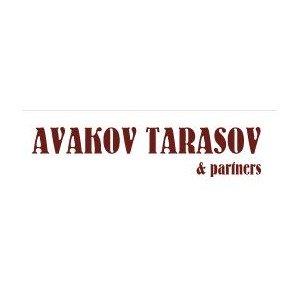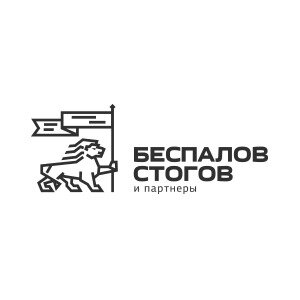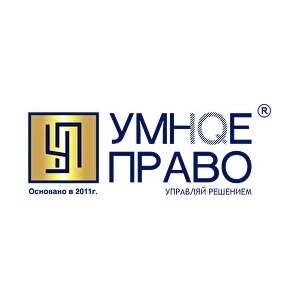Best Merger & Acquisition Lawyers in Russia
Share your needs with us, get contacted by law firms.
Free. Takes 2 min.
Or refine your search by selecting a city:
List of the best lawyers in Russia
About Merger & Acquisition Law in Russia
Merger and Acquisition (M&A) law in Russia is an evolving body of regulations that govern the consolidation of companies and assets through various types of financial transactions. In Russia, M&A activities are influenced by a combination of corporate law, competition law, securities regulation, and antitrust laws. The goal is to ensure that any merger or acquisition aligns with the broader economic and competitive interests of the nation. The legal framework in Russia for M&A is primarily overseen by the Federal Antimonopoly Service (FAS), which plays a central role in ensuring competitive practices across trade and commerce.
Why You May Need a Lawyer
Legal expertise is crucial in M&A transactions due to the complex nature of the process. Here are common situations where legal help might be necessary:
- Conducting due diligence to ensure compliance with Russian laws and regulations.
- Drafting and negotiating transactional documents like asset purchase agreements or share purchase agreements.
- Handling regulatory approvals or notifications, especially from the FAS.
- Addressing tax issues that arise during the restructuring or transfer of assets.
- Negotiating cross-border deals which require coordination with foreign regulations.
- Resolving disputes that may arise during the merger or acquisition process.
Local Laws Overview
Several key aspects of Russian law are particularly relevant to M&A:
- Corporate Legislation: The Civil Code of Russia and the Law on Joint Stock Companies provide the foundational rules for corporate governance and shareholder rights.
- Antitrust Laws: Governed by the Federal Law on Protection of Competition, these laws dictate how M&A activities should proceed without harming market competition.
- Securities Regulation: The Russian Federal Service for Financial Markets regulates the trading of securities, affecting publicly listed companies involved in M&As.
- Foreign Investment Laws: These laws outline how foreign investors can participate in M&As and any restrictions thereof.
Frequently Asked Questions
What is the process for completing an M&A transaction in Russia?
It typically involves initial negotiation, due diligence, regulatory approvals, drafting of agreements, and final closing. The process can vary based on the nature and size of the transaction.
Who needs to approve a merger or acquisition in Russia?
The Federal Antimonopoly Service is the primary body that reviews and approves mergers and acquisitions to ensure they do not reduce competition.
Are there any industries where foreign ownership is restricted?
Yes, Russia restricts foreign ownership in certain strategic sectors, such as defense, energy, and media. Foreign investors must seek governmental approval in these areas.
What are the tax implications of an M&A in Russia?
M&A transactions in Russia can result in several tax considerations, including VAT, income tax, and transfer pricing, which must be strategically managed.
How long does the M&A process typically take in Russia?
While the duration can vary significantly, it generally takes several months to a year, factoring in negotiations, due diligence, and regulatory approvals.
Do we need to notify employees about a pending merger or acquisition?
Typically, employment laws require that employees are informed and consulted about potential changes that might affect them due to an M&A process.
What role do directors play during a merger or acquisition?
Directors must act in the best interest of the company, ensuring compliance with legal obligations and safeguarding shareholder interests.
How is intellectual property handled in an M&A deal?
Intellectual property is often a critical asset in M&A transactions, requiring careful evaluation and registration to ensure proper transfer of ownership.
What is due diligence, and why is it important?
Due diligence is the comprehensive appraisal of a business by prospective buyers to assess risks and validate financials and operations before the transaction.
Can a merger or acquisition be reversed after completion?
While reversal is complex and rare, it can happen if regulatory violations are found or through shareholder litigation challenging the process.
Additional Resources
For further information and assistance regarding M&A law in Russia, consider the following resources:
- Federal Antimonopoly Service (FAS) for guidance on competition and antitrust issues.
- The Chamber of Commerce and Industry of the Russian Federation for business and legal networking opportunities.
- The Russian Ministry of Economic Development for insights on economic policies affecting M&A.
- Legal publications and journals focusing on international business law.
Next Steps
If you require legal assistance in merger and acquisition, it is advised to begin by consulting with a specialized M&A attorney with expertise in Russian law. Conduct research to find a lawyer who is well-versed in local laws and has a solid track record in handling successful M&A transactions. Consider engaging with law firms that offer comprehensive legal services, including due diligence, negotiation, and compliance checks, to ensure a smooth and legally sound transaction process.
Lawzana helps you find the best lawyers and law firms in Russia through a curated and pre-screened list of qualified legal professionals. Our platform offers rankings and detailed profiles of attorneys and law firms, allowing you to compare based on practice areas, including Merger & Acquisition, experience, and client feedback.
Each profile includes a description of the firm's areas of practice, client reviews, team members and partners, year of establishment, spoken languages, office locations, contact information, social media presence, and any published articles or resources. Most firms on our platform speak English and are experienced in both local and international legal matters.
Get a quote from top-rated law firms in Russia — quickly, securely, and without unnecessary hassle.
Disclaimer:
The information provided on this page is for general informational purposes only and does not constitute legal advice. While we strive to ensure the accuracy and relevance of the content, legal information may change over time, and interpretations of the law can vary. You should always consult with a qualified legal professional for advice specific to your situation.
We disclaim all liability for actions taken or not taken based on the content of this page. If you believe any information is incorrect or outdated, please contact us, and we will review and update it where appropriate.
Browse merger & acquisition law firms by city in Russia
Refine your search by selecting a city.

















